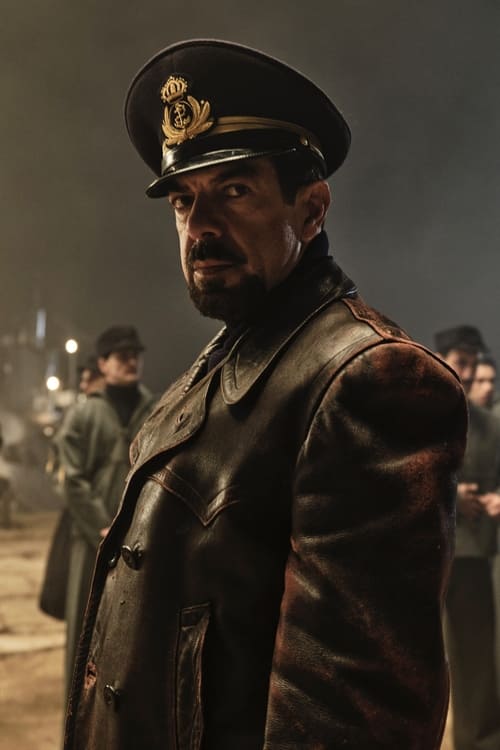Last updated on August 30, 2023
A film by Edoardo De Angelis
With: Pierfrancesco Favino, Luca Chikovani, Johannes Wirix, Johan Heldenbergh, Mario Russo, Lucas Tavernier, Massimiliano Rossi, Silvia D’Amico, Giulio Greco, Arianna di Claudio
At the start of WWII, Salvatore Todaro commands the Italian Royal Navy submarine Cappellini. One dark night in October 1940, while navigating in the Atlantic, he comes upon an armed merchant ship sailing with lights out. He shoots his cannons at the ship and sinks it. At that moment, the Commander makes a decision that was destined to go down in history: he saves the 26 shipwrecked Belgians who otherwise would have drowned in the middle of the ocean and disembarks them at the nearest safe harbor, as prescribed by the law of the sea. To make room for them on board his submarine, he is forced to navigate on the surface of the water for three days, visible to the enemy forces and endangering his life and that of his men.
Our Review: **(*)
The first film in competition to be screened at the 80th biennale, “Commandante” is halfway between the mystical war story dear to Coppola, Boorman, Cimino and Mallick (Apocalipse Now, Journey to the Edge of Hell, Heaven’s gate), which focuses on the images that cross the minds of combatants, the evolution of their psychology in the face of the worst, the fascination that war, nationalism and combat can exert, and a poetic tale à la Moby Dick, which interweaves atypical figures, songs and poetry, erudition and lyricism to convey, with a strange distance, the fascination that drives the protagonists on a quest with a return that is more than uncertain, in particularly difficult conditions that call for the survival instinct, comradeship as an outlet, or the need to escape inwardly. The story relies heavily on the charisma of its hero (Pierfrancesco Favino, interesting and credible in his sailor-in-chief costume) and his troops, and on his righteousness, but also on a part of Italian history that may seem anecdotal at first glance, but which has the advantage of distinguishing two dimensions of warfare: facing the enemy, and facing the men. Although this “commandante” is quite successful in terms of its formal intentions, it is not entirely in tune with the times. Hardly innovative, it suffers from giving too much pride of place to men, to an ambient masculinity, without providing a perspective that would distinguish it from the few masterpieces mentioned above, and without managing to rival them in terms of intensity. The established plot, announced by feminine off-voices (the women on the quayside, unattended “earthly” sirens who try to warn their men of the inexorable fatality of their mission – and to extricate them from it) is certainly occasionally spiced up with a few surprising actions, a few interesting phrases, but besides that, Edoardo De Angelis finds himself somewhat trapped by his realistic intention, which forces him to feed his story with repetitive tasks, and to convey this repetition, but also the boredom that submariners experience in the performance of their duties, cut off from everything and forced to share a narrow space with no horizon, no light and very few space-time references.










Be First to Comment